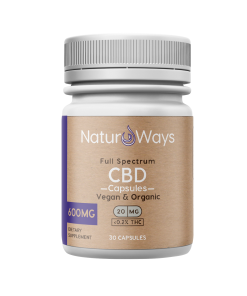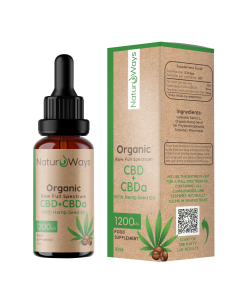- Home
- What is CBDa?
WHAT IS CBDa?
Cannabidiol acid (CBDA) is a non-psychoactive cannabinoid and the acidic precursor to CBD. It can be found in the live or raw form of cannabis, particularly in the hemp plant and strains bred to cultivate higher CBD levels. CBDA converts to CBD through decarboxylation, which occurs when cannabis is exposed to heat or sunlight.
It can be consumed by juicing with raw cannabis, and may also be found in tinctures, topicals, and capsules. CBDA shows promise as an anticonvulsant, anti-nausea and vomiting agent, analgesic, and anti-inflammatory. It may also have antibacterial, antioxidant, and cancer-preventing properties.
WHAT ARE CANNABINOIDS?
Cannabinoids are the naturally occurring chemical compounds found in the cannabis plant. Cannabinoids are partly responsible for the wide array of medicinal and psychoactive effects cannabis may provide. Currently there are over 110 known cannabinoids with more likely to be discovered as studies continue to reveal the complex molecular structures of the cannabis plant.
Cannabinoids interact with human physiology through the endocannabinoid system (ECS), the set of receptors that function to regulate health and promote homeostasis throughout the body. The ECS has two primary receptors, the CB1 and CB2. The CB1 receptor binds primarily to the brain and nervous system, while the CB2 receptor interacts largely with the immune system. The cannabis plant relies on cannabinoids binding to these receptors to produce the array of potential benefits and effects. Each cannabinoid holds unique characteristics of their own that are worth noting in order to maximize desired effects from medicating with cannabis.

HOW DOES CBDA WORK?
CBDA isn’t known to bind directly with the CB1 and CB2 receptors but interacts with the ECS as an inhibitor to the COX-2 enzyme, giving CBDA the potential to reduce inflammatory activity throughout the body. It is also thought to enhance the serotonin-producing 5-HT receptor. This particular interaction could possibly make CBDA a primary contributor to the antiemetic effects of cannabis.
It is widely considered to be a key constituent in the medicinal spectrum of cannabis and the multitude of therapeutic applications it may offer.
THE RESEARCH
A study from September 2008 examined CBDA’s potential anti-inflammatory properties through its selective inhibition of the COX-2 enzyme. A September 2012 study researched CBDA as a possible anti-cancer agent. The antiemetic effects of CBDA was the subject of a February 2013 study. A January 2017 study suggested CBDA may have application in the treatment of aggressive breast cancer.












